The meeting has many important contents.
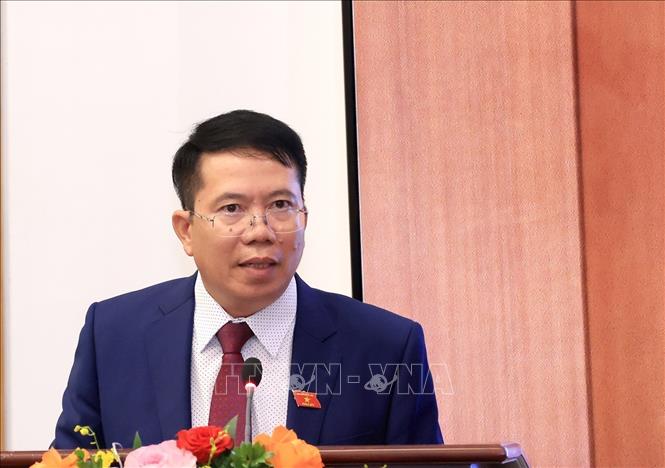
Deputy Head of the National Assembly Office Nguyen Van Hien reported on the expected agenda of the 10th Session of the 15th National Assembly. Photo: Tuan Anh/VNA
At the press conference, Deputy Head of the National Assembly Office Nguyen Van Hien said that the 10th Session of the 15th National Assembly held a preparatory session, opening on the morning of October 20 and expected to close on December 11, 2025 at the National Assembly House, Hanoi . The working time of the Session is expected to be about 40 days.
This is a session with many important contents. The National Assembly has just conducted the contents of the regular session; at the same time, summarized the term of the 15th term.
At this session, the National Assembly will consider and decide on 66 contents and groups of contents (49 draft laws, 4 resolutions on legislative work; 13 groups of contents on socio -economics, state budget, supervision and other important issues).
Preparations for the 10th Session were carried out very carefully. The National Assembly Standing Committee spent a lot of time giving opinions on the contents of the Session, and organized a full-time National Assembly Delegates Conference to discuss the contents submitted to the National Assembly for consideration and approval. The Secretary General of the National Assembly and the National Assembly Office have strengthened their direction, proactively coordinated with relevant agencies, actively implemented, reviewed, and improved to further improve the quality of service for the Session.
Regarding legislative work, at the 10th session, the National Assembly will consider and pass 49 laws and 4 resolutions on legislative work. This is the session with the largest number of legislative contents since the beginning of the 15th National Assembly's term.
At this session, the National Assembly will consider and decide on 13 groups of contents on socio-economics, state budget, supervision and other important issues, such as: Consider and decide on socio-economic issues, state budget; consider and approve the Resolution of the National Assembly on the results of the thematic supervision "Implementation of policies and laws on environmental protection since the Law on Environmental Protection 2020 took effect"; consider and discuss the summary report on the implementation by members of the Government, Chief Justice of the Supreme People's Court, Chief Prosecutor of the Supreme People's Procuracy, State Auditor General on the resolutions of the 14th and 15th National Assembly terms on thematic supervision and questioning; discuss the draft Report on the work of the 15th National Assembly term; Review the work reports for the 2021-2026 term of: the President, the Government, the National Assembly Standing Committee, the Nationality Council, the National Assembly Committees, the Supreme People's Court, the Supreme People's Procuracy, the State Audit Office; review and approve the Resolution on summarizing the work for the 2021-2026 term. In addition, the National Assembly will review and decide on many other important contents.
Improvements and innovations in the way the Session is conducted
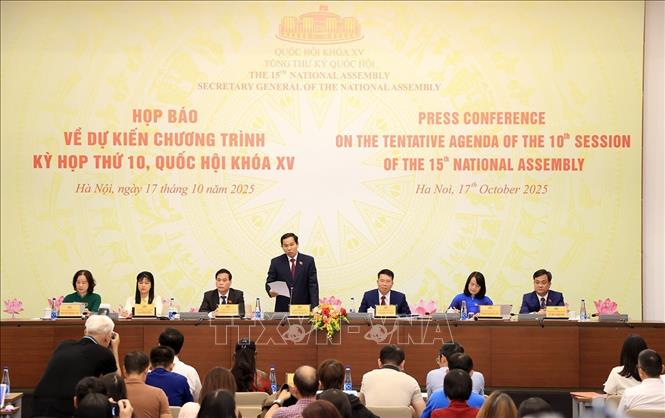
Scene of the press conference. Photo: Tuan Anh/VNA
Responding to reporters' questions regarding improvements and innovations in the way the 10th Session is conducted, Deputy Head of the National Assembly Office Nguyen Van Hien said that this is a very special session - the last session of the term; both carrying out the contents of the regular session and summarizing the 15th term. With a huge workload and a record time (about 40 days), the National Assembly will consider and pass 49 laws and 4 resolutions on legislative work; in addition, consider and decide on 13 groups of contents on socio-economics, state budget, supervision and other important issues.
With a large workload and high quality requirements, the National Assembly has made certain improvements in processes, operating methods and facilities preparation. Accordingly, the National Assembly has promoted the e-Parliament and applied artificial intelligence in all areas of operation. Since September 15, the National Assembly Office has switched to a "paperless" model, all administrative work and professional processing are carried out via electronic applications. The National Assembly is the leading agency in the "Digital Education for the People" movement. National Assembly deputies have applied artificial intelligence very well to serve their professional work.
In the management work, to ensure efficiency, science and time saving, the Session will have changes such as not arranging mid-term breaks as before, changing the form of direct questioning at the Hall to sending questions immediately to the responsible person to answer; at the same time, raising groups of closely related issues for focused, scientific and time-saving discussion. This approach helps the drafting and reviewing agencies coordinate closely, helping delegates easily identify overlaps and inconsistencies between draft laws; thereby, improving the effectiveness of receiving and perfecting legal documents - Mr. Nguyen Van Hien said.
Deputy Head of the National Assembly Office Nguyen Van Hien added that after the arrangement of administrative units, the number of provinces/cities directly under the Central Government was reduced from 63 to 34, so the arrangement of meeting groups and meeting rooms was adjusted accordingly. Accordingly, the number of discussion groups was reduced from 19 to 16, based on careful and scientific calculations, ensuring harmony between central and local delegates, between regions and appropriate numbers... This arrangement is aimed at helping discussions be effective, scientific and time-saving. All smart meeting rooms will facilitate this arrangement and adjustment.
For the meeting in the Hall, the preparation work was carried out carefully and improved but still strictly followed the rules to improve the effectiveness of the discussion, arrange the program and arrange the seats scientifically and reasonably. The preparation work regarding facilities, sound, light, security, medical... was carefully reviewed, ensuring the best conditions for the group meetings and the hall.
Since the 9th Session, the National Assembly Standing Committee has held three meetings (48, 49, 50). The Standing Committee of the National Assembly Party Committee has closely coordinated with the Standing Committee of the Government Party Committee to have two detailed meetings to unify the preparation contents. "Up to now, the basic contents serving the 10th Session have been carefully prepared, ensuring the best conditions for the Session," affirmed the Deputy Head of the National Assembly Office.
Responding to the fact that the question and answer session will not be held in person at the Hall, Mr. Nguyen Van Hien said that the way the Session is organized and conducted has changed because this is a special session. Quoting the provisions of Article 32 of the Law on Organization of the National Assembly: "If necessary, the National Assembly and the National Assembly Standing Committee will allow written responses", Mr. Nguyen Van Hien stated: "This is a situation where necessary. We do not abandon the form of questioning, we still question like previous sessions but allow the person being questioned to send in writing. Thus, we do not leave the form of supervision blank. In addition to questioning, the National Assembly's supervision activities also have other forms through reports, thematic supervision... which do not affect the full implementation of the functions of the National Assembly at the Session".
To ensure the quality of the draft laws, Vice Chairman of the National Assembly's Committee on Law and Justice Nguyen Manh Cuong stated that grouping draft laws and reports in the same field for discussion is still the optimal solution to complete the massive workload of this session. These are all very urgent and pressing issues in amendments and supplements. Discussing draft laws in the same field does not mean chasing quantity, but must still ensure the highest quality for the draft laws passed by the National Assembly.
Accordingly, the National Assembly Standing Committee has thoroughly implemented innovation in legislative thinking. The National Assembly only regulates framework and principle issues within its authority; while specific, practical, and frequently changing issues will be assigned to the Government for guidance, in order to ensure the stability and flexibility of the law. At the same time, the National Assembly also applies issued resolutions to remove difficulties and obstacles in law-making.
The National Assembly Party Committee regularly coordinates with the Government Party Committee and relevant agencies to direct the submitting and reviewing agencies to enhance their responsibilities in law-making, reviewing, receiving, and revising draft laws; directs the removal of difficulties and obstacles in developing the contents of draft laws and strictly implementing new provisions of the Law on Promulgation of Legal Documents 2025; directs National Assembly deputies and National Assembly delegations to further enhance their responsibilities in researching and participating in draft laws...
Reasons for not amending the Land Law immediately
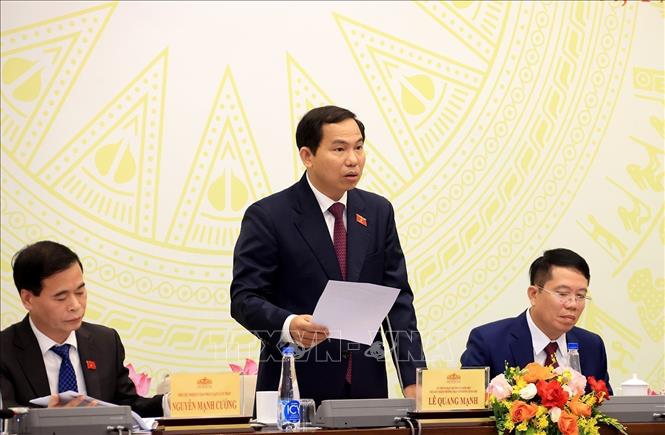
Member of the National Assembly Standing Committee, Permanent Deputy Head of the National Assembly Office Le Quang Manh speaks. Photo: Tuan Anh/VNA
Regarding the decision not to amend the Land Law but to issue a Resolution to remove difficulties and obstacles in implementing the provisions of the current Law, especially regarding land price calculation, Member of the National Assembly, full-time member of the National Assembly's Economic and Financial Committee Pham Thi Hong Yen, said that the 2024 Land Law will only take effect from August 1, 2024. This is a major law, of special importance, directly and deeply affecting all socio-economic activities, businesses and people. In the recent past, along with the system of documents guiding its implementation, the 2024 Land Law has added many new breakthrough contents.
However, from 2024 to now, Vietnam is facing an unpredictable global economic context. Domestically, we focus on prioritizing the target of growth and macroeconomic stability. At the same time, one of the most important contents in recent times is the implementation of the revolution of arranging and streamlining the apparatus and organization of 2-level local governments. This is a requirement that requires timely solutions to overcome shortcomings, to adapt to the new context, new development goals and new organizational models.
The reason for not amending the Land Law immediately is that it is necessary to fully and comprehensively assess the current difficulties and obstacles; at the same time, ensure that the law-making solutions are comprehensive, fundamental, comprehensive, synchronous and interconnected, on the basis of harmonizing the interests of the State, people and enterprises. Therefore, the comprehensive amendment of the Land Law will continue to be studied in the coming time.
The solution to issue a resolution to immediately resolve the difficulties in the current context is also the content that the Government agencies, the National Assembly's inspection agencies and the Economic and Financial Committee will continue to study to report to the National Assembly Standing Committee, the National Assembly and National Assembly deputies for consideration and decision on related contents. This solution aims to achieve the set goals; contribute to the implementation of socio-economic development goals, improve the effectiveness and efficiency of land management and use; thereby creating momentum for Vietnam to become a developed, high-income country.
Personnel work will be carried out carefully.
Regarding personnel work at the Session, Vice Chairwoman of the National Assembly Delegation Affairs Committee Ta Thi Yen said that the 10th Session of the 15th National Assembly is a very important session, marking the period when the National Assembly completes its responsibilities of the term and prepares for the new term. In addition to the contents of legislation, supervision and decision on socio-economic development policies, personnel work is a highlight that voters and people pay special attention to.
Based on the decision of the Central Executive Committee and the submission of competent agencies, the National Assembly will consider and decide on a number of personnel matters within its authority, including: electing, approving or dismissing a number of key leadership positions in the state apparatus. This is a regular process to ensure the succession, stability and operational efficiency of the apparatus in the new situation.
The entire personnel process is conducted in accordance with the provisions of the Constitution and the law, ensuring democracy, objectivity and transparency. National Assembly deputies will exercise their rights and responsibilities before the people and voters through secret ballot, ensuring the principle of democratic centralism and proper authority.
"It can be affirmed that the personnel work at this Session will be a step to perfect the apparatus at the end of the term, at the same time preparing for the term of the 16th National Assembly, creating a foundation for the state apparatus to operate more effectively and efficiently. And under the leadership of the Party, the unity in the political system and the consensus of the people, personnel work will be carried out carefully, in accordance with the process, contributing to strengthening the trust of voters and enhancing the effectiveness and efficiency of the state apparatus," Ms. Ta Thi Yen stated.
Ms. Ta Thi Yen said that in the current context, the amount of legislative work is very large. Institutional improvement is identified as one of the strategic breakthroughs of the 13th Party Congress, a key factor for the country to develop rapidly and sustainably, maintaining political and social stability.
As the highest state power organ, the role of the National Assembly is even more important in building a synchronous and feasible legal system, creating momentum for development. This requires each National Assembly deputy not only to have a firm grasp of the law and a deep understanding of practice, but also to devote much time and effort to the work of legislation, supervision and important policy decisions of the country.
Therefore, one of the major orientations of the upcoming election of deputies to the 16th National Assembly is to continue restructuring, improving quality and increasing the proportion of full-time deputies.
"Reality shows that full-time delegates have the conditions to focus on deeper research on law and policy making, thematic supervision and participate in deciding important issues with higher quality. It is expected that in the coming time, the structure of the number of full-time delegates will be reviewed to increase both quantity and quality, ensuring at least 40% according to the provisions of the Law on Organization of the National Assembly; at the same time, improving standards of capacity, qualifications and practical experience. The arrangement and assignment of full-time delegates at the National Assembly agencies will be arranged more reasonably to ensure that the National Assembly operates more professionally, effectively and efficiently, meeting the expectations of voters and people," Ms. Ta Thi Yen stated.
Source: https://baotintuc.vn/thoi-su/ky-hop-thu-10-co-so-luong-noi-dung-lap-phap-lon-nhat-cua-nhiem-ky-quoc-hoi-khoa-xv-20251017192556624.htm



![[Photo] Closing ceremony of the 18th Congress of Hanoi Party Committee](https://vphoto.vietnam.vn/thumb/1200x675/vietnam/resource/IMAGE/2025/10/17/1760704850107_ndo_br_1-jpg.webp)
![[Photo] Collecting waste, sowing green seeds](https://vphoto.vietnam.vn/thumb/1200x675/vietnam/resource/IMAGE/2025/10/18/1760786475497_ndo_br_1-jpg.webp)
![[Photo] Immerse yourself in the colorful musical world of “Secret Garden Live in Vietnam”](https://vphoto.vietnam.vn/thumb/1200x675/vietnam/resource/IMAGE/2025/10/18/1760805978427_ndo_br_thiet-ke-chua-co-ten-41-png.webp)
![[Photo] General Secretary To Lam attends the 95th Anniversary of the Party Central Office's Traditional Day](https://vphoto.vietnam.vn/thumb/1200x675/vietnam/resource/IMAGE/2025/10/18/1760784671836_a1-bnd-4476-1940-jpg.webp)

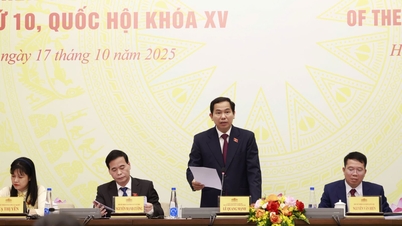
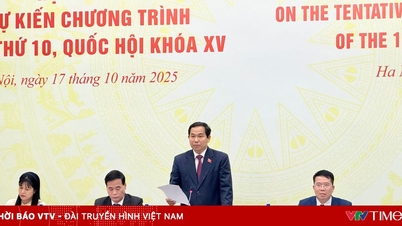


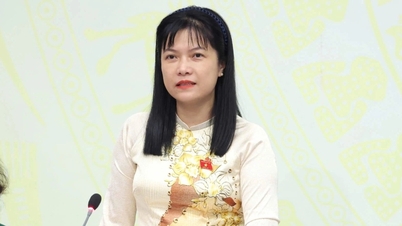



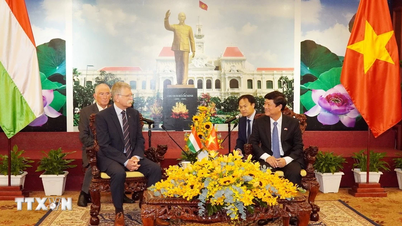




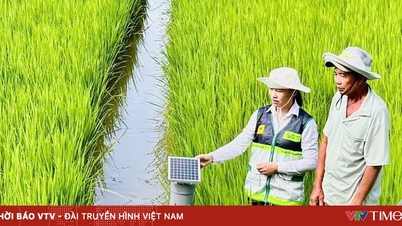
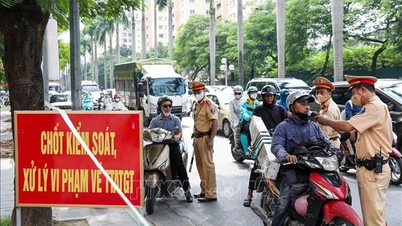







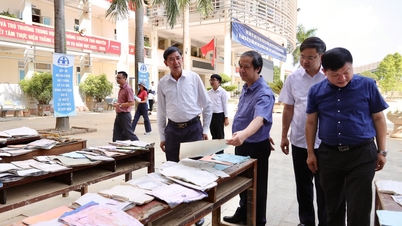
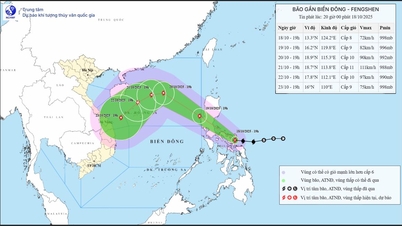



































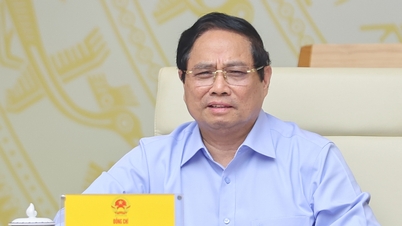
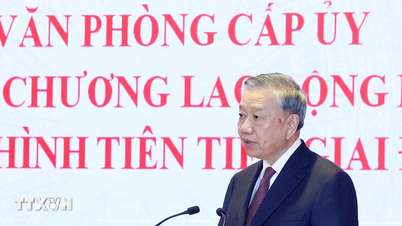







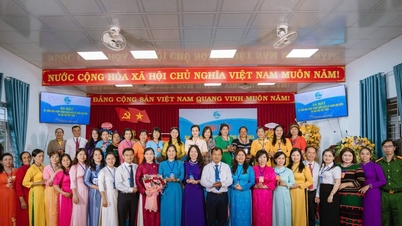

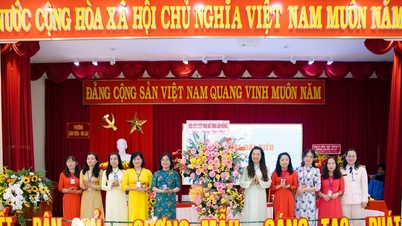





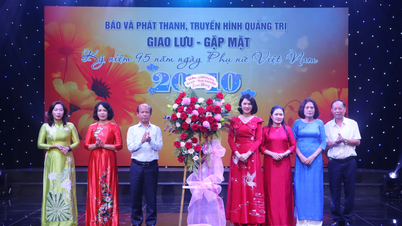













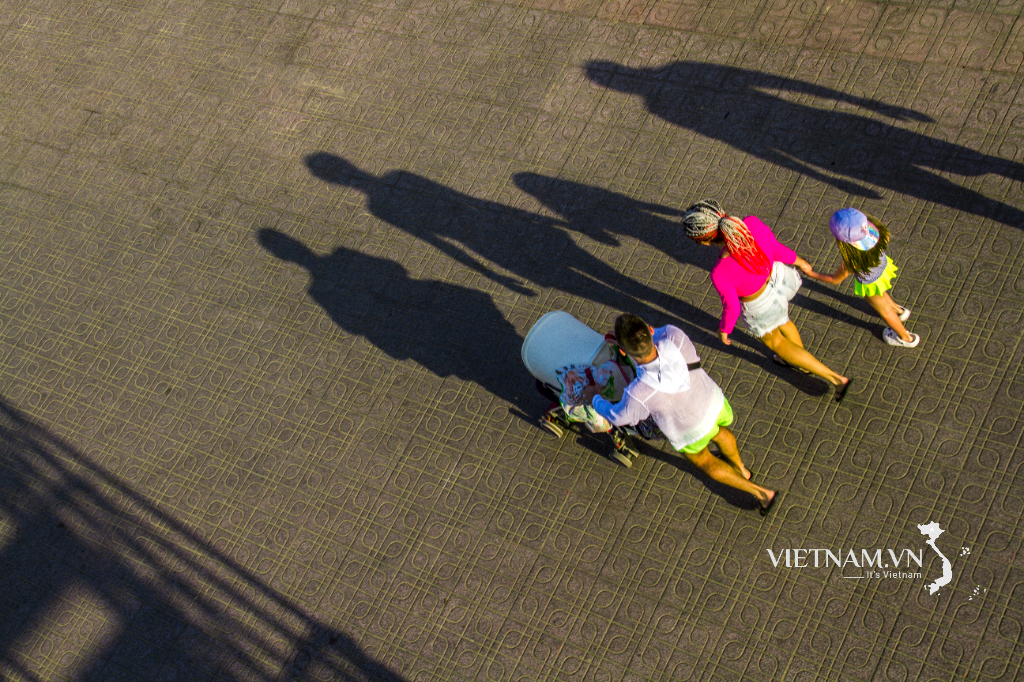

Comment (0)